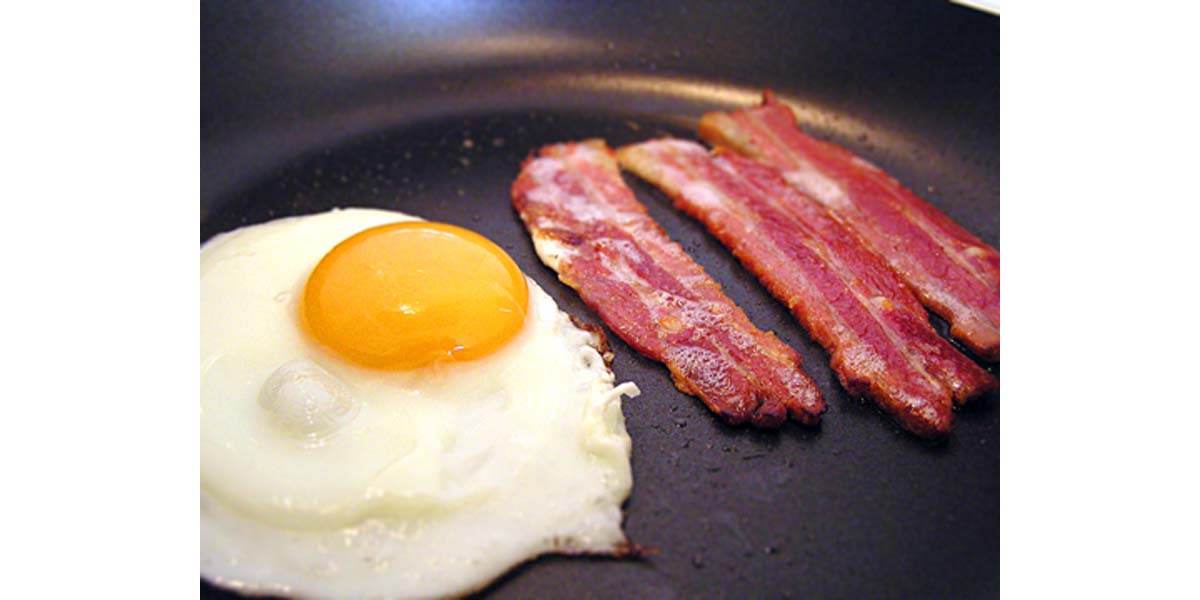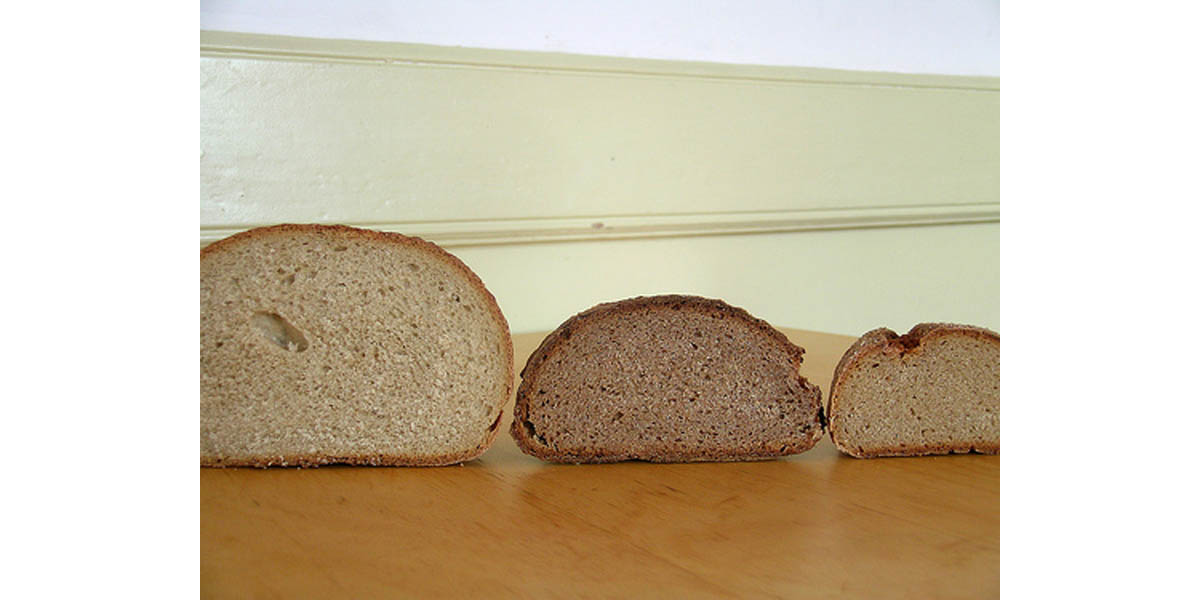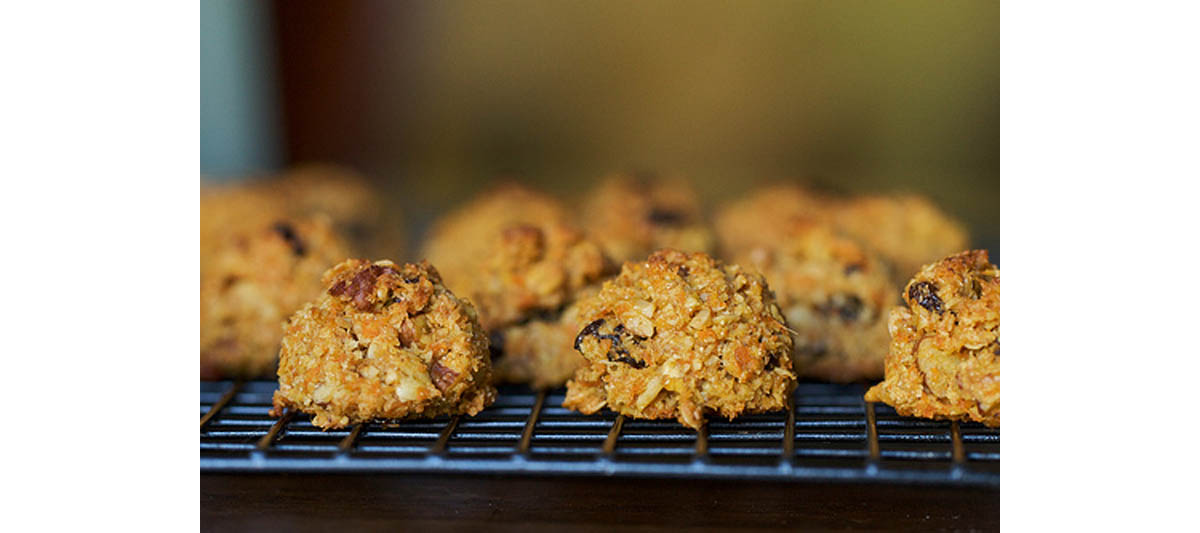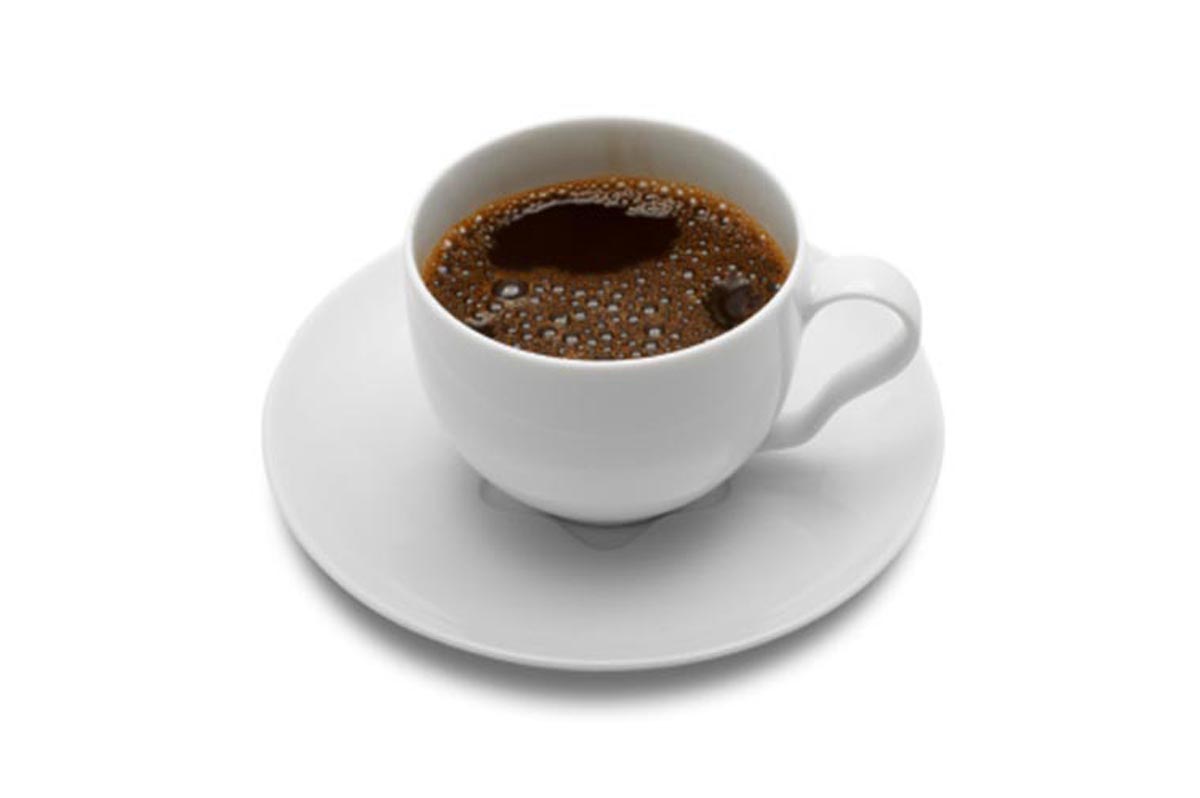Breakfast is the bugaboo of nutritionists planning healthy meals. People charging out the door to get to work or school may toast a Pop Tart to eat while walking out the door, washed down with coffee drunk in the car.
What's Wrong with Bacon and Eggs?
At the opposite extreme, breakfast can be a time to load up on tasty, fatty foods, especially at breakfast buffets. Bacon, more bacon, sausages, ham, eggs, biscuits, rolls, French toast, and pastries taste great and don't fill you up, so you can eat more and more and more until you waddle out the door of the buffet restaurant.
A 200-calorie breakfast can be just as unhealthy as breakfast of 2,000 calories or more. Certain foods, however, are always problematic.
- Smoked pork products are tasty, but inflammatory. Few foods provide more arachidonic acid in the diet than bacon, sausage, and ham. Arachidonic acid is essential for making the hormones that cause inflammation, but too much arachidonic acid in the diet cancels out the benefits of "good" fats and can contribute to skin breaking out, joint pain, wrinkles, allergies, and systemic inflammation. Smoked beef products (for people who keep hallal or kosher) are not a lot better.
- Eggs in and of themselves, even if you eat two or three, usually make a minimal contribution to blood cholesterol. The New England Journal of Medicine published a case study of an 88-year-old man in good health who had eaten 25 eggs a day for over a decade who had normal cholesterol levels. The body simply does not absorb excess cholesterol from eggs. It does, however, absorb the fat in which eggs are cooked, as well as the considerable arachidonic acid content of the egg yolk.
- Doughnuts are delicious. They are round, filling the entire field of vision. They have a hole in the center that acts as a bull's eye target for your hand to reach. It's easy to eat one, and another, and another, gulping them down without thinking. The pancreas processes the sugar load in doughnuts by releasing massive amounts of insulin. Insulin accelerates the creation of inflammatory hormones such as leukotriene B4 and prostaglandin E2, which are made from arachidonic acid from foods like pork and eggs. These hormones increase water retention, especially in belly fat. Eaters of doughnuts get fatter even if they manage to avoid calories during the rest of the day.
- Potatoes, oats, and wheat both contain chemicals that activate pro-inflammatory genes in belly fat. More specifically, potatoes, oats, and wheat contain chemicals that activate 62 different genes that increase insulin use, which in turn increases inflammation and fat storage.
- Sugar-sweetened breakfast cereals actually are healthier when consumed with milk. Many epidemiological studies have found that Americans who eat cereal and milk for breakfast have better bone health earlier and later in life than Americans who don't. The sugar surge that gets you out the door early in the morning, however, becomes the sugar crash a few hours later, increasing your appetite for foods like doughnuts.
Eating these every day can set you up for developing insulin resistance, making it easier for your body to put on fat, raising blood pressure, raising cholesterol, and often leading to diabetes. Certain sensible alternatives, however, can get your going in the morning and keep you going all day without super-sizing sugar and fat.
Healthy Breakfasts That Won't Make You Late for Work
If you aren't going to eat Pop tarts, doughnuts, bacon and eggs, or fast food for breakfast, how can you get the proverbial "healthy start to your day" without spending hours in the kitchen. Here are five suggestions. Try them. They are healthy, they are easy, and you might like them.1. Try rye

Wheat activates 62 genes that cause inflammation in belly fat. Rye activates 71 genes that counteract inflammation in belly fat. Lower levels of inflammation lead to lower levels of insulin resistance, lower blood pressure, less muscle pain, and better sleep. If you are going to eat toast for breakfast, make it rye toast.
2. Select sourdough
If you eat wheat products for breakfast, sourdough is superior. The process of "souring" the bread breaks down some of the proteins in wheat that can cause intestinal inflammation, and transforms the carbohydrate into a form that raises blood sugar levels more slowly. You are less likely to "crash and burn" if you eat sourdough toast for breakfast than if you eat doughnut.3. Eat protein bars

You can grab a protein bar for US $2-$3 or € 1-2 each a couple times a day and feel satisfied. Also, over the course of a few years you and your family will have spent enough money on protein bars to pay for a very nice vacation or maybe even a small car. It's not hard to make your own protein bars that taste better, cost a lot less, and contain exactly the ingredients you want.
Make bars from 4 cups of your favorite trail mix (dried fruit or berries and nuts), 2 cups of vanilla-flavored protein powder (whey powders tend to bake better than soy or pea powders), 1 cup of pasteurized egg whites, and 1-2 teaspoons of vanilla extract. Mix together, spread over a non-stick baking pan, and cook at 350° F/175° C for no more than 10 minutes, making sure not to overcook. Cool and cut into bars.
4. Drink a small glass of juice
A tall glass of juice contains as much carbohydrate as a breakfast pastry. A small glass of juice, however, provides antioxidants and vitamin C in the amounts the body can use. Prune juice cancels out some of the detrimental effects of nitrates and preservatives in breakfast meats, and orange juice is mildly anti-inflammatory.
provides antioxidants and vitamin C in the amounts the body can use. Prune juice cancels out some of the detrimental effects of nitrates and preservatives in breakfast meats, and orange juice is mildly anti-inflammatory.
5. Go ahead and drink your morning coffee
In the American diet, coffee is the single largest source of antioxidants, more than fruit and vegetables or antioxidant supplements. Drinking coffee keeps blood sugar levels lower and insulin levels lower after breakfast. Both regular and decaffeinated coffee prevent sugar highs that are followed by sugar lows, and reduce inflammation in joints, muscles, and belly fat. The only way you can go wrong with coffee for breakfast is to drink a combination of coffee and cream in roughly equal amounts. Any coffee drink that contains 300 calories or more of cream or milk will increase inflammation rather than decreasing it. One or two creams with your coffee will not have a noticeable effect.- Kallio P, Kolehmainen M, Laaksonen DE, Kekäläinen J, Salopuro T, Sivenius K, Pulkkinen L, Mykkänen HM, Niskanen L, Uusitupa M, Poutanen KS. Dietary carbohydrate modification induces alterations in gene expression in abdominal subcutaneous adipose tissue in persons with the metabolic syndrome: the FUNGENUT Study. Am J Clin Nutr. 2007 May, 85(5):1417-27.
- Photo courtesy of urbanfoodie33 on Flickr: www.flickr.com/photos/75574760@N00/3526713693/
- Photo courtesy of spaceageboy on Flickr:http://www.flickr.com/photos/spaceageboy/3083497421/
- Photo courtesy of chiotsrun on Flickr: www.flickr.com/photos/chiotsrun/5223552600/
- Photo courtesy of Ibán on Flickr: www.flickr.com/photos/7394371@N06/2415806759/
- Photo courtesy of Phil Lees on Flickr: www.flickr.com/photos/lastappetite/2346779224/

